Illinois passed historic legislation in 2021, putting them on the path toward 100% clean energy. The Climate and Equitable Jobs Act could be a blueprint for other states. As Illinois is one of the top five coal producers in the U.S., its plan to move away from fossil fuels is ambitious. However, the provisions in the bill are as important as the overarching mission. It provides a path to help low to moderate-income (LMI) communities transition to clean energy and accelerate climate justice. It’s no secret that climate change disproportionately affects impoverished Americans and that many of the worst polluters are also located in those same communities. Unfortunately, for many people living there, it’s a trade-off between their health and livelihood because the industries offer the only viable employment. HBCU Clean Energy Initiative examines how this comprehensive energy package strives for climate justice and equity by addressing climate change in LMI communities, promoting job growth, and enacting consumer protections.
Addressing Climate Change in LMI Communities
A report released by the Federal government in 2018 predicted climate change would hit low-income community residents the hardest. The report found that many of their neighborhoods “have the greatest exposure to climate and extreme weather events.” Those residents are less likely to have adequate insurance, the resources to modify their homes, or the ability to relocate. In addition, heart and lung disease, heat stroke, and bacterial infections are just a few of the health consequences associated with climate change. And a lack of health insurance for many low-income Americans will also intensify the risks of illnesses.
The Illinois Climate and Equitable Jobs Act seeks to address the disproportionate effects of climate change through some critical initiatives, including:
- Doubling the state’s investment in renewable energy
- Requiring all private coal-fired and oil-fired electric generating units to reach zero emissions by 2030
- Creating a coal to solar program to support the transition to renewable energy production and storage facilities.
- Requiring all private and municipal natural gas-fired units to reduce emissions and reach zero emissions by 2045. They are also mandated to prioritize their reductions in environmental justice communities with higher emissions rates.
Promoting Job Growth
One of the biggest concerns for communities dependent on the fossil fuel industry is how to transition to clean energy without losing jobs. The Illinois legislature made sure to allocate investment for workforce development in the new bill. Some of the provisions include:
- Creates a displaced energy workers bill of rights to provide state support to transitioning energy sector workers.
- Establishes Energy Transition Navigators to provide education, outreach, and recruitment to equity-focused populations to ensure they are aware of workforce development programs.
- Creates a Clean Jobs Workforce Network Hubs Program, leveraging community-based organizations to ensure members of equity-focused populations have dedicated and sustained support to enter and complete the career pipeline for clean energy jobs.
- Offers a clean jobs training program for careers in the clean energy sector to individuals who are currently incarcerated.
- Ensure that all utility-scale wind and solar projects are built with project labor agreements and that prevailing wages are paid on all non-residential wind and solar projects.
- Requires a transition scholarship program to support youth deterred from attending or completing an educational program at an Illinois higher education institution should their parent’s be laid off from a retiring power plant.
Protecting Consumer Rights
As the state transitions to a clean energy economy, another concern was that energy companies would pass those costs on to consumers with rate increases which would disproportionately affect lower-income consumers. Therefore, provisions were put in place to prevent that which include:
- Eliminates the customer deposit requirement and late fees for low-income utility residential customers. And eliminates the online payment fee for all customers’ utility bills.
- Requires utility companies to accurately report on the number of shutoffs and reconnections monthly.
- Provides utility-funded compensation to non-profit consumer interest groups that increase public engagement and transparency, expand information, and improve decision-making.
- Requires a comprehensive study to assess whether low-income discount rates for residential customers are appropriate and consider the design and implementation of such rates.
- Prevents municipal and cooperative electric providers from imposing discriminatory financial repercussions on customers who self-generate electricity.
Summary
This legislation passed by the state of Illinois is groundbreaking on many levels. After the bill was signed into law, the Illinois Clean Jobs Coalition put out a statement, “Our climate crisis is certainly not waiting. But black and brown communities looking for environmental justice and workers shut out of the clean energy economy have waited far too long. The Climate and Equitable Jobs Act is a bold, nation-leading law that will put Illinois on a path to a 100% clean energy future, protect public health, provide a just transition for communities dependent on dirty fossil fuels, enact tough utility accountability measures, and create jobs and wealth in Illinois’ Black and Brown communities.”
By accounting for the impact of a green transition for low- and moderate-income residents, Illinois has set an example for the rest of the country to follow. A clean energy transition can accelerate climate justice.
To find out more about how the HBCU Clean Energy Initiative accelerates climate justice click here.
To read more HBCU Clean Energy Initiative blogs, click here.

